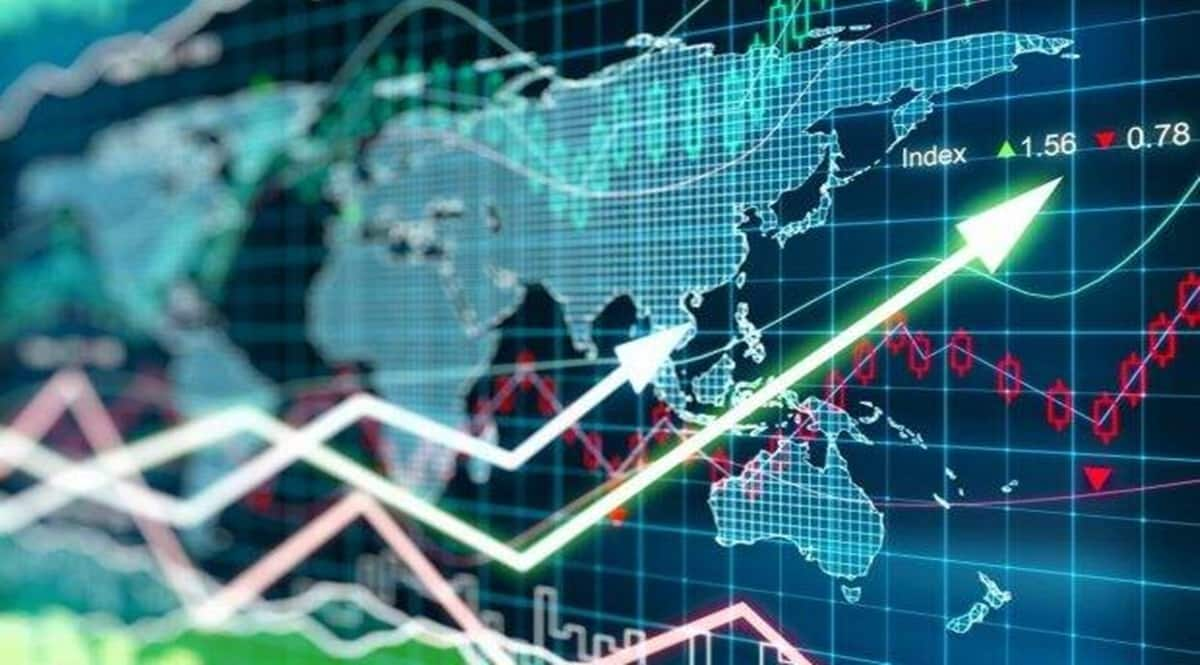World stocks fell on Thursday and bonds resumed their slide after a surprise Swiss interest rate hike fuelled concerns about surging inflation and an aggressive policy tightening outlook from global central banks.
The Swiss National Bank raised its policy rate for the first time in 15 years with a 50 basis point hike that soured the mood and sent the safe-haven franc up sharply.
The MSCI’s benchmark for global stocks fell 0.4% by 1158 GMT. The initial positive reaction to the widely expected 75 basis point (bps) rate hike by the U.S. Federal Reserve also fizzled out.
The pan-European STOXX 600 fell to its lowest since February 2021, down 2.4%, S&P 500 and Nasdaq e-mini futures slid 2.2% and 2.6% respectively, pointing to a reversal of the previous session’s rally.
“There’s a lot of nervousness. After the initial relief to the Fed … markets seem to have woken up that it is still a 75 basis point rate hike,” Giuseppe Sersale, strategist and portfolio manager at Anthilia in Milan.
“If even the Swiss central bank surprisingly raises by half a point, clearly investors imagine that the tightening of central banks is still very violent. There is very little to be cheerful about,” he added.
While Swiss stocks were close to confirming a bear market pattern, the UK’s top FTSE 100 equity benchmark briefly came off lows as sterling plunged following the BoE’s rate hike, which confounded some forecasts of a bigger move.
“Once again the BoE looks like the timid cat next to the Fed’s roar against inflation … A 6-3 vote on 25 bps means that the sterling bulls will have little to back up any attempt to push the pound higher against the dollar,” said Chris Beauchamp, Chief Market Analyst at IG Group in London.
EYE-CATCHINGThe Fed approved on Wednesday its biggest interest rate hike since 1994 and officials predicted further steady rises this year, targeting a federal funds rate of 3.4% by year-end.
Fed projections also showed U.S. economic growth slowing to a below-trend rate of 1.7%, and policymakers expect to cut interest rates in 2024.Data on Friday showed a sharper-than-expected rise in U.S. inflation in May, alongside a University of Michigan survey showing consumers’ five-year inflation expectations jumping sharply to their highest since June 2008.
In a news conference following the Fed’s latest two-day policy meeting, Fed Chair Jerome Powell said that the survey was “quite eye-catching”.“(Inflation expectations) are starting to look like they’re too high. That I think is one reason why Powell wanted to do a 75 … And I think they will also go again in July,” said Joseph Capurso, head of international economics at Commonwealth Bank of Australia.“They’ve got to get inflation down. They’re so far behind the curve it’s not funny.”
MSCI’s broadest index of Asia-Pacific shares outside Japan fell 1.1%, erasing earlier gains.After retreating from a 20-year peak following the Fed meeting, the dollar regained some footing.The global dollar index, which tracks the greenback against a basket of six peers, was last up 0.25% at 105.06.The Swiss franc soared after the surprise rate hike and was set for its best day against the euro in seven years. It was last up 1.8% against the euro at 1.019 and was 1.4% higher against the dollar at 0.9805.
Sterling fell 0.2% to $1.2141. It fell as much as 1.1% in the immediate aftermath of BoE’s decision before recovering.
YIELDS RISEThe SNB hike helped put fresh pressure on European bond prices as investors ramped up bets for ECB rate hikes. Germany’s 10-year yield, the benchmark for the bloc, rose 26 basis points and was set for its biggest jump since 1998.U.S. 10-year Treasury yields rose 18 bps to 3.475%.
Oil prices erased early gains on the back of inflation concerns highlighted by interest rate hikes in the United States, Britain and Switzerland.Brent crude was last down 1.9% to $116.2 per barrel and U.S. crude fell 1.9% to $113.1.Gold was lower as the dollar firmed. Spot gold last traded at $1,830.7 per ounce, down 0.8% on the day.

Leave a Reply